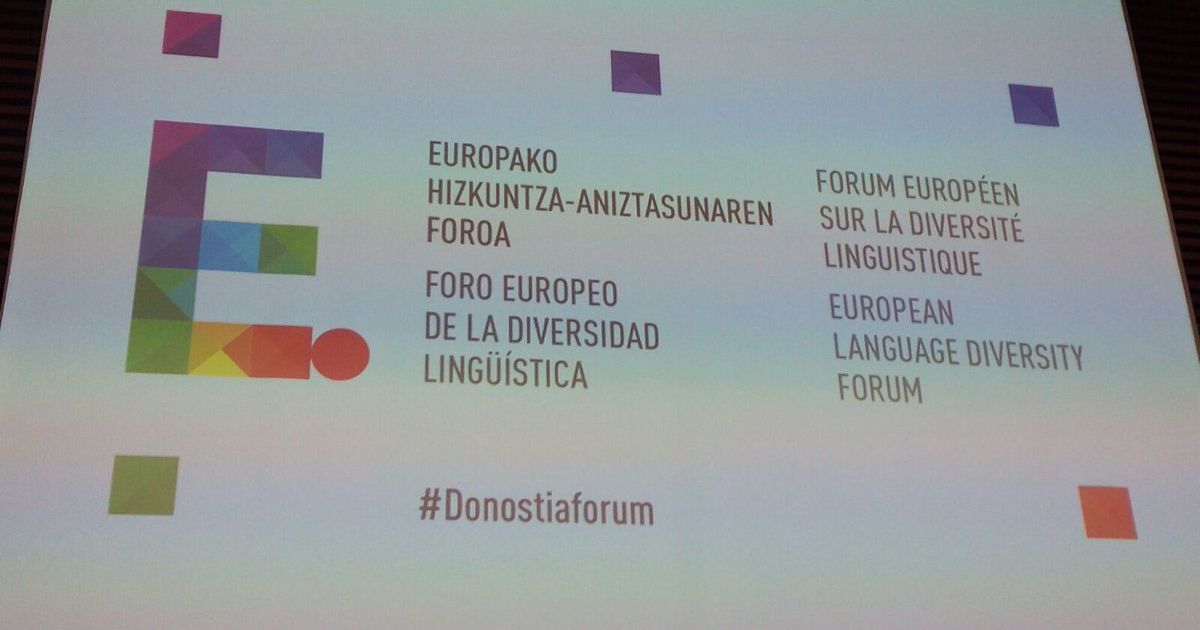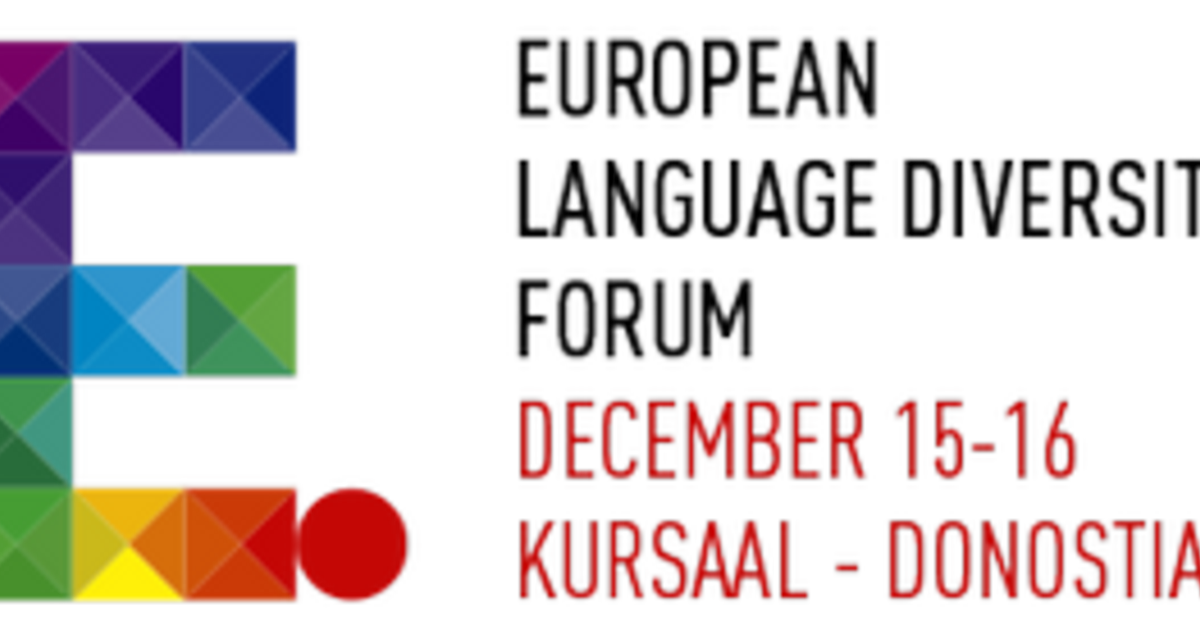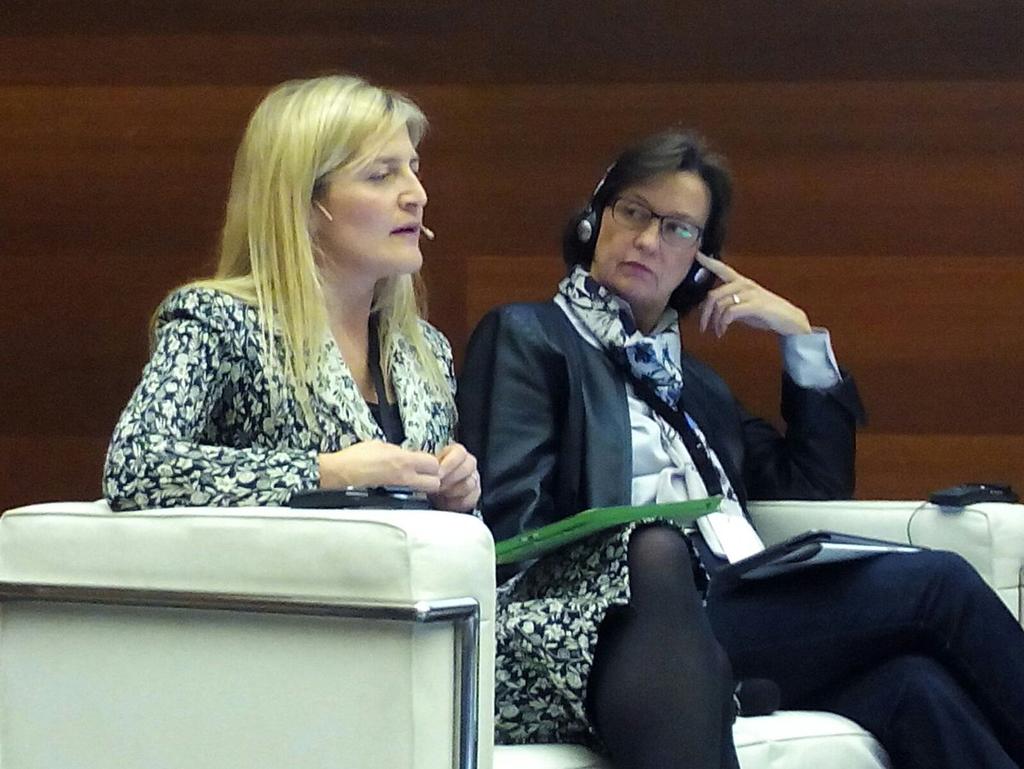
European Language Diversity Forum in Donostia-San Sebastián
17.12.2016On 15-16 December 2016, a large-scale event took place in the European Capital of Culture Donostia-San Sebastián. The main aim of Donostia 2016 was to encourage the participation of citizens at all levels. Among other things, it encouraged diversity and creativity through cultural expressions and values related to living together. One of the mains foundations was language diversity. Promoting the development of all language is essential to guarantee the identity, equality and freedom of people, according to the organisers. These are currently not guaranteed.
The European Language Diversity Forum brought together organisations of civil society on a European level, as well as organisations from the world of research and culture, and government bodies to reflect on and debate the different aspects of the development of minority languages in Europe. The Forum aimed at reclaiming linguistic diversity as key element for building a more democratic, cohesive, inclusive and peaceful Europe, taking into account the effects of world changes, and to promote European cooperation.
The programme included presentations of well-known linguists such as Suzanne Romaine (University of Oxford), case studies from Finland, Catalonia, the Basque Country and Wales, a debate and round table about the effectiveness of the European Charter of Regional or Minority Languages, a round table about European language policy with European politicians (Nils Torvalds MEP and former MEP François Alfonsi), experts (ECMI-director Tove Malloy) and NGO-representives (NPLD-Vice Chair Sabrina Rasom). The Forum concluded with the presentation of the new UNESCO Atlas of the World Languages.
Presentation Event of the Donostia Protocol
Following the European Language Diversity Forum, on Saturday 17 December 2017 the Protocol to Ensure Language Rights (Donostia Protocol) was launched. This Protocol was the result of a process of more than a year, in which more than 100 NGOs from across Europe worked together to develop a catalogue of 185 measures. These include tangible actions in education, the socio-economic field, media, and new technologies. The Protocol to Ensure Language Rights has three main objectives: to declare that guaranteeing language diversity are key to peaceful coexistence, to create an effective instrument for language equality and the cultivation of languages in unfavourable situations and to ensure that the language communities are the main actors involved in the process.
Over the past year FUEN has supported the initiators by spreading the word and encouraging minorities to contribute to the Protocol. FUEN congratulates the organisations and individuals that developed the Protocol with their achievement and hopes that the Protocol will be of help to minorities and language communities across Europe in their their struggle to realise language equality within their societies.
More about the Donostia Protocol and the European Language Diversity Forum
Donostia Protocol website
Presentation in the European Parliament in 2015
Panel discussion about the Donostia Protocol in Flensburg
European Language Diversity Forum


COMMUNIQUÉ DE PRESSE
- New secretariat in the Polish parliament supports national and ethnic minorities
- FUEN calls for the inclusion of the Ladin language at the 2026 Winter Olympic Games
- FUEN Urges UN Special Rapporteur to Advocate for a Coherent EU Minority Protection Framework
- FUEN wishes you a peaceful Christmas season, restful days and a bright, hopeful start to the new year!
- FUEN calls on the EU to act over systematic ethnic-based land confiscations in Slovakia
- Women of Minorities conference in Budapest calls for structural change to ensure equal political participation of minority women
- FUEN President Olivia Schubert at UN Forum on Minority Issues in Geneva
- "Laboratory of Peace": 28th Seminar of Slavic Minorities held in European Capital of Culture Gorica/Gorizia
- Equality in Political Participation and Representation: Third “Women of Minorities” Conference to Be Held in Budapest
- FUEN Working Group on Education discusses challenges and future of minority schooling in Europe














